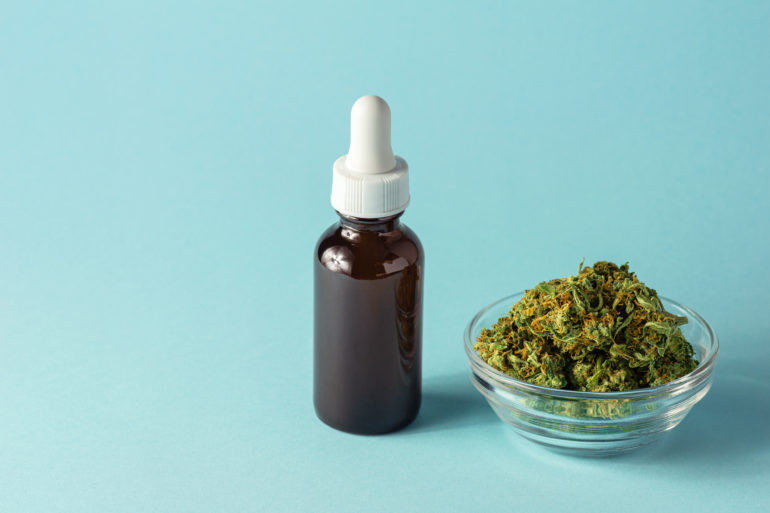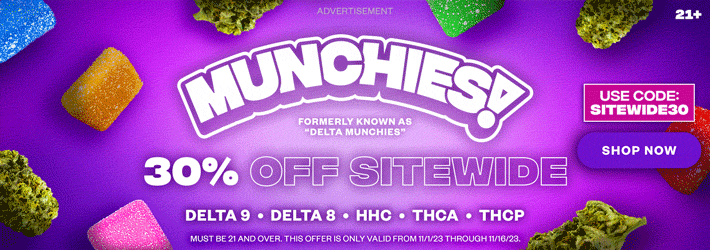The difference between hemp oil and CBD oil can be confusing. Many think that hemp oil and CBD oil are exactly the same, but they’re not. If you’re looking for nutrition, hemp oil will serve you well. If you need physical or emotional support – you’re gonna need real CBD oil. Learn more about the differences between CBD oil and hemp oil so you can spot the difference when making a purchase.
What’s the difference between CBD oil and hemp oil?
- Hemp oil is made from hemp seeds; CBD oil is made from the stalk, leaves, and flower of the hemp plant
- Hemp oil contains no phytocannabinoids; CBD oil does.
- Hemp is legal everywhere, CBD is not
- Hemp oil is poised for general wellness, whereas CBD has specific uses for ailments
- CBD oil is far more expensive than hemp oil due to expensive growing, cultivation, and extraction processes.
- Knowing the difference between CBD oil and hemp oil is very important — never solely rely on the product name alone
Hemp oil vs. CBD oil: What’s the difference?
| Hemp Oil | CBD Oil |
|---|---|
| Contains trace amounts of CBD | The amount of CBD contained in CBD oil depends entirely on the extract. CBD isolates distilled in a carrier oil can reach over 90% CBD. Hemp plants contain roughly 10%-20% CBD. |
| Contains no THC | Contains the legal limit of THC (<0.3% or <0.5% for some states) |
| Made from hemp seeds | Made from the stalk, leaves, and flowers of the hemp plant |
| Similar color and consistency as CBD oil | Similar color and consistency as hemp oil |
| Mostly used in skincare and beauty products — less health benefits than CBD oil | Boasts a wide range of uses and health benefits (anxiety, depression, insomnia, pain, inflammation, etc) |
| Typically less expensive than CBD oil | Typically more expensive than hemp oil |
Why there’s confusion between hemp oil and CBD oil
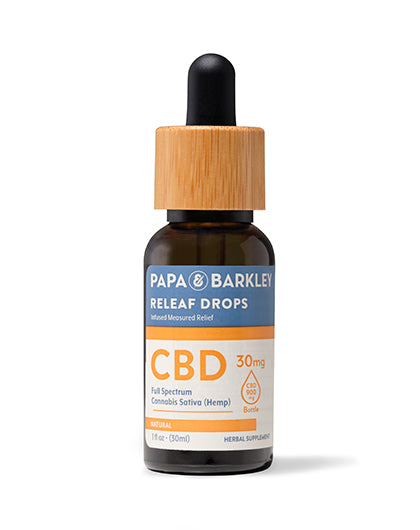
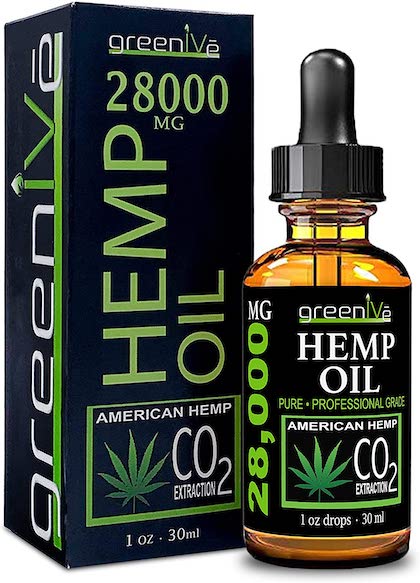
To be blunt, stupid and ill-informed companies are mostly to blame for this. Actually, there are two distinct groups of companies to blame for this.
The first group simply has no idea about hemp or hemp-derived terminology. They use these terms interchangeably without knowing what they mean or what they stand for.
The second group is the opposite. They do know what these terms mean and what they stand for but for the wrong reasons. They know cannabis and varieties of cannabis sell — and they sell very well indeed. So, they think, “we’ll label our products with every cannabis-related name because we know we’ll profit from it”.
I’ve personally seen hemp oil referred to as CBD oil. I’ve also seen hemp oil referred to as CBD oil. I’ve even seen hemp oil referred to as cannabis hemp oil (which is another story for another time!). This, of course, causes a lot of confusion and is incredibly frustrating to see.
The good news is you won’t harm yourself by accidentally consuming one or the other. Neither CBD oil nor hemp oil is hazardous to humans. I just don’t want you to spend your hard-earned money on one thing and get something completely different.
So, let’s take a look at what hemp oil and CBD oil actually is.
What is hemp oil?
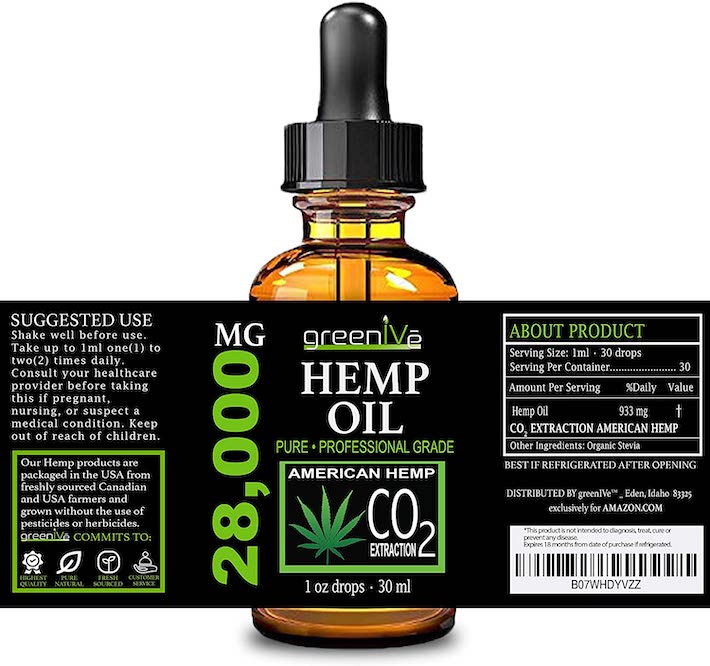
Hemp oil isn’t CBD oil, even though CBD originates from hemp plants (and other varieties of cannabis). Confused? You should be. Logic surely dictates these two products serve the same purpose and contain the same ingredients — this isn’t the case.
Hemp oil is often referred to as hempseed oil. As the alternate name suggests, hemp oil is created solely from hemp seeds — the stalk, leaves, and flowers of the hemp plant (where you find a high number of cannabinoids) aren’t used.
These seeds are “cold-pressed” after having their tough outer shells removed. Cold-pressing is conducted by a special machine that squeezes the newly exposed seeds to create a beautiful golden oil ready for your consumption.
Hemp seeds contain none of the beneficial phytocannabinoids as you would with a CBD oil. You, therefore, won’t find any trace of tetrahydrocannabinol (THC) in a hemp oil product — though studies have shown THC contamination has occurred in hemp oil products. This is presumably rare, however.
In other words, hemp oil won’t get you high and doesn’t have the same beneficial power you find in CBD oils.
Benefits of hemp oil and what it can do for you
1. Excellent source of nutrition
I personally started using hemp seeds and hemp seed oil in foods very recently and I’ve found them to be massively beneficial to my overall health and wellness, which isn’t a huge surprise really. They’re packed full of nutrition and natural goodness, specifically linoleic acid (omega-6) and alpha-linolenic acid (omega-6), both of which are the good kind of polyunsaturated fats commonly found in salmon and sardines.
Omega-3 intake, specifically, is said to be a mood enhancer and a natural antidepressant. When taken as a supplement, omega-3 intake lessened symptoms of depression.
Omega-6, on the other hand, is known to primarily facilitate improved brain function, particularly when taken in conjunction with omega-3. It’s also known to be a pretty effective anti-inflammatory.
Alongside this, hemp oil is packed full of protein, as well as vitamin E and carotene, which is the precursor to vitamin A.
2. Helps keep your skin moisturized (and other benefits)
Keeping your skin nourished, moisturized, and free from inflammation is essential. If you’re suffering from dry, cracked, and/or painful skin, it can really take a toll on your confidence and self-esteem. I know this first hand. My skin can be super dry and inflamed when wintertime rolls around.
Fortunately, I’ve found hemp oil to be really effective in combating my shit skin in winter.
The reason for this?
Hemp oil contains gamma-linolenic acid (GLA), which is a type of omega-6 responsible for treating a variety of skin complaints including psoriasis, eczema, and acne. It also helps keep your skin moisturized, glowing, and, ultimately, healthy.
3. Keeps the waistline in check
I’m an obsessive food lover to the point where it’s almost a sin against my own waistline. Honestly, if I didn’t workout quite so much, I’d be a lot rounder than I am right now.
But what I’m really conscious of is sugar intake, which is known to pack on the pounds in a very short amount of time. Fortunately, the GLAs in hemp oil are believed to suppress the appetite and help reduce those dreaded sugar cravings.
Honestly? If you’re someone with a sweet tooth and an affinity to all things sugary, I suggest consuming some hemp oil.
Hemp oil is safe (with a few side-effects)
Hemp oil does have some side-effects which are actually similar to CBD oil but none of them will cause you any adverse or serious health problems.
- Diarrhea
- Throat irritation
- Slower heart rate
- High blood pressure
- Nausea & vomiting (rare)
What is CBD oil?
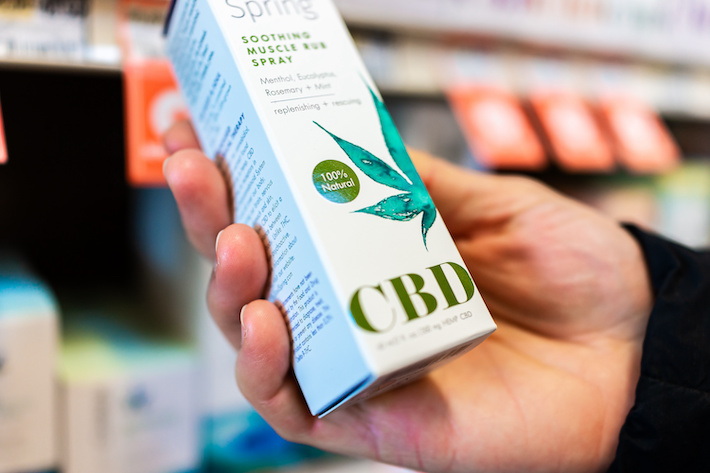
I’ll now let you in on a second secret: CBD oil isn’t hemp oil, even though CBD originates from hemp (and other varieties of cannabis). Feeling a bit of deja vu here? Don’t worry. You’re not going mad. I just wanted to drive the point home that these two products are totally different.
CBD oil isn’t made from hemp seeds — in fact, hemp seeds aren’t ever used in legitimate CBD oil due to containing little to no CBD (or other cannabinoids).
Instead, CBD oil is made from the stalks, leaves, and flowers of the hemp plant where you find high percentages of CBD, as well as other very beneficial cannabinoids such as:
- THC (less than 0.3%)
- Cannabigerol (CBG)
- Cannabichromene (CBC)
- Cannabinol (CBN)
- Cannabigerol (CBG)
- Cannabichromene (CBC)
- Cannabidivarin (CBDV)
- Cannabidiolic acid (CBDA)
You’ll also find naturally-occurring flavonoids, terpenoids, and other unique compounds. All of this together is said to work synergistically with your own endocannabinoid system (ECS) to bring your body to a state of homeostasis.
CBD itself is a non-intoxicating phytocannabinoid. Its popularity has risen quite dramatically over the past couple of years. It won’t get you high, nor will it impair your thinking. It will, however, relax the hell out of you, as well as provide you with a heap of benefits which we’ll cover in more detail below.
Benefits of CBD oil and what it can do for you
1. Anxiety & anxiety-related disorders
I’m sure at some point in your life you’ve experienced some symptoms of anxiety — perhaps short or long-term. This is a natural and, oftentimes, healthy reaction to external stimulus. It alerts you of present or perceived dangers and forces you into a “fight or flight” situation.
However, sometimes your brain can work overtime, which can lead to excessive, disproportionate, and uncontrollable worry and negative thought patterns.
Thankfully, researchers believe CBD oil can help alleviate and/or manage symptoms of anxiety through inhibiting your GABA neurotransmitters (responsible for firing off in anxiety) and generally just slowing everything down.
Early studies into the connection between CBD and anxiety caused by THC usage showed positive results. Volunteers found CBD ingestion after THC consumption helped them. Fast-forward to 2011 and researchers found CBD to be effective against public speaking anxiety.
It’s, therefore, worth investing some of your time and money into CBD oil, particularly if you have anxiety or anxiety-related troubles. I recommend a 500 mg full-spectrum CBD oil with trace amounts of THC and other cannabinoids if you’re just starting out. If you’ve used CBD oil for anxiety before and you’re finding a lower dosage less effective, perhaps move up to a 1000 mg strength option.
2. Insomnia & other sleep-related issues
I think we can all agree not having enough sleep is one of the most annoying things ever. I personally value sleep. I hate not getting a full eight hours of solid rest — I equally hate waking up feeling groggy in the mornings. I can’t concentrate and I’m certainly not easy to be around.
To be honest, though — I can’t complain. I know there are many of you out there who suffer far worse than I do, especially if you’re burdened by insomnia or other chronic sleep-related disorders.
If this sounds all too familiar to you, there’s some light at the end of the tunnel. Preliminary research into CBD use as a therapeutic tool for tackling sleep-related issues looks very promising, particularly if you suffer from insomnia or REM sleep behavior disorder.
If this has piqued your interest, I advise purchasing a full-spectrum CBD oil. One major difference between the efficacy of CBD oil vs hemp oil is the amount of other cannabinoids, particularly the amount of cannabinol (CBN). CBN is known for its impact in supporting sleep function. If you’re a total novice, try a 250-500 mg option — anything higher than this might be a little too overwhelming. If you’ve given oils a try before and the lower potency was ineffective, go one strength higher.
For example, if you tried a 1000 mg CBD oil, move up a level and purchase a 1200 or 1500 mg product. Try not to go too much higher than this — again, it might be a little overwhelming.
3. Pain & inflammation
CBD’s anti-inflammatory and analgesic properties are well-known amongst researchers and users of CBD oil. In fact, many users consume CBD oil for pain and inflammation alone. I’m sure you’ve used CBD oil before and it has worked wonders for your knee issues or muscle soreness. Therefore, you won’t be surprised to learn athletes use CBD oil to combat a whole range of symptoms caused by physical exertion.
Some of the most notable athletes in the public eye who use CBD oil (as well as other CBD related products) include Derrick Morgan (NFL linebacker), Yair Rodriguez (MMA fighter), Nate Diaz (MMA fighter), and Lamar Odom (NBA player).
I recommend using either a broad or full-spectrum oil here — preferably the latter but if you’re not happy with THC in your product, the former will suffice. For mild pain and inflammation, a 750-1000 mg strength option is perfect. You won’t need anything stronger than this. For more severe symptoms, a 1500-1800 mg strength option will be much more effective.
CBD oil is safe (with some side-effects)
Although the World Health Organization (WHO) deemed CBD and CBD oil safe for human consumption with no adverse effects on your mind and body, there are some side-effects to watch out for.
- Dry mouth
- Stomach complaints & diarrhea
- Headaches & dizziness
- Low blood pressure
There’s a reason why CBD oil is pricier than hemp oil
Actually, there are a few reasons why CBD oil is pricier than hemp oil.
Growing and cultivating CBD-rich strains of cannabis (marijuana or hemp) for CBD oil is a timely and expensive process. Farms need to pay workers a decent wage, expensive cultivation equipment is required, and a lot of time is spent making sure each plant is on par with the industry standards. All of this adds to the cost of your bottle(s) of CBD oil.
This level of tender loving care isn’t needed for the hemp seeds used in hemp oil. To be honest, there’s no growing or cultivation process needed, which, therefore, doesn’t add to the cost of the end product.
Hemp oil also doesn’t go through a rigorous or expensive extraction process. As I mentioned previously, the seeds are simply cold-pressed using a machine and that’s pretty much it. On the other hand, CBD oil goes through quite a meticulous and careful extraction process — typically supercritical CO2 extraction, which is quite expensive to carry out.
However, there are times where hemp oil is much more expensive than CBD oil. This is typically a red flag. If you ever see a bottle of hemp oil at a price in the triple digits, assume it’s a bullshit company selling a bullshit product. The most I’ve ever spent on hemp oil is $30 and that was for a 250 mL bottle.
How to tell the difference between hemp oil and CBD oil
- Don’t just rely on the label — check the ingredients list as well
- If the ingredients list doesn’t include any cannabinoids, it’s not a CBD oil
- All CBD oils will state whether they’re an isolate, broad-spectrum, or full-spectrum product
- Certificates of Analysis (COAs) will determine whether your product is a CBD oil or not
- COAs will show the cannabinoids present in the product
- Don’t rely on what the oil looks like — hemp oil and CBD oil look similar (color and consistency)
This is going to sound very obvious, but honestly? Always check the ingredients list. Don’t just rely on what the label says. As I mentioned in my rant earlier, there are a lot of shitty companies out there. They’re either clueless about hemp and CBD oil and will use both terms interchangeably, or they’ll use whatever term they think fits in order to capitalize on potential profit.
Either way, the ingredients list is your best friend here.
Hemp seeds will be included in the ingredients list. This is a huge tell-tale sign you’re purchasing hemp oil. Hemp oil won’t include any cannabinoids e.g. CBD, THC, etc.
CBD oil, on the other hand, will contain cannabinoids in its ingredients list. It’ll also say whether the extract used is an isolate, broad-spectrum, or full-spectrum. If you’re still in doubt, always check the company’s website for Certificates of Analysis (COAs).
COAs are documents produced by accredited third-party laboratories after the product/extract has been tested. They show the extract used and the cannabinoids present. This is a foolproof way of determining whether the product is a CBD oil or not.
As a side note, don’t rely on what the oil looks like — they’re very similar in color and consistency.
Want to know more about which CBD oils to purchase? We’re here to help!
